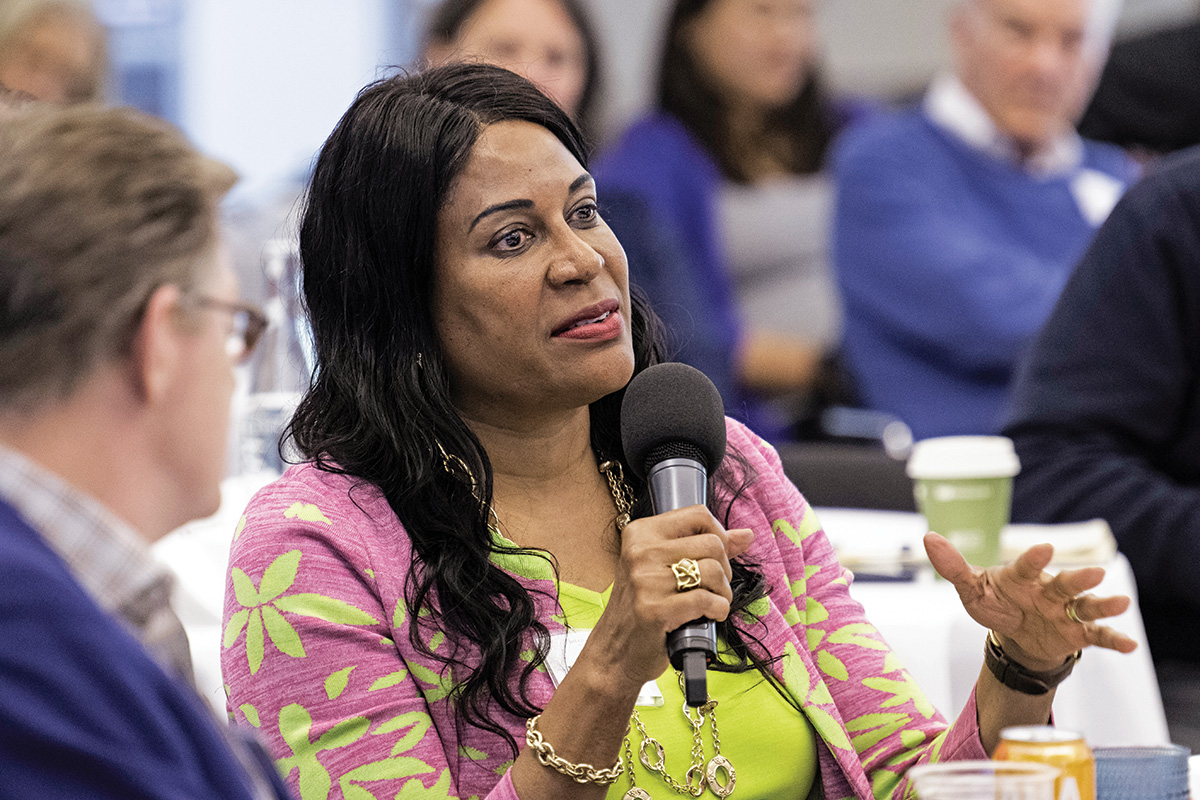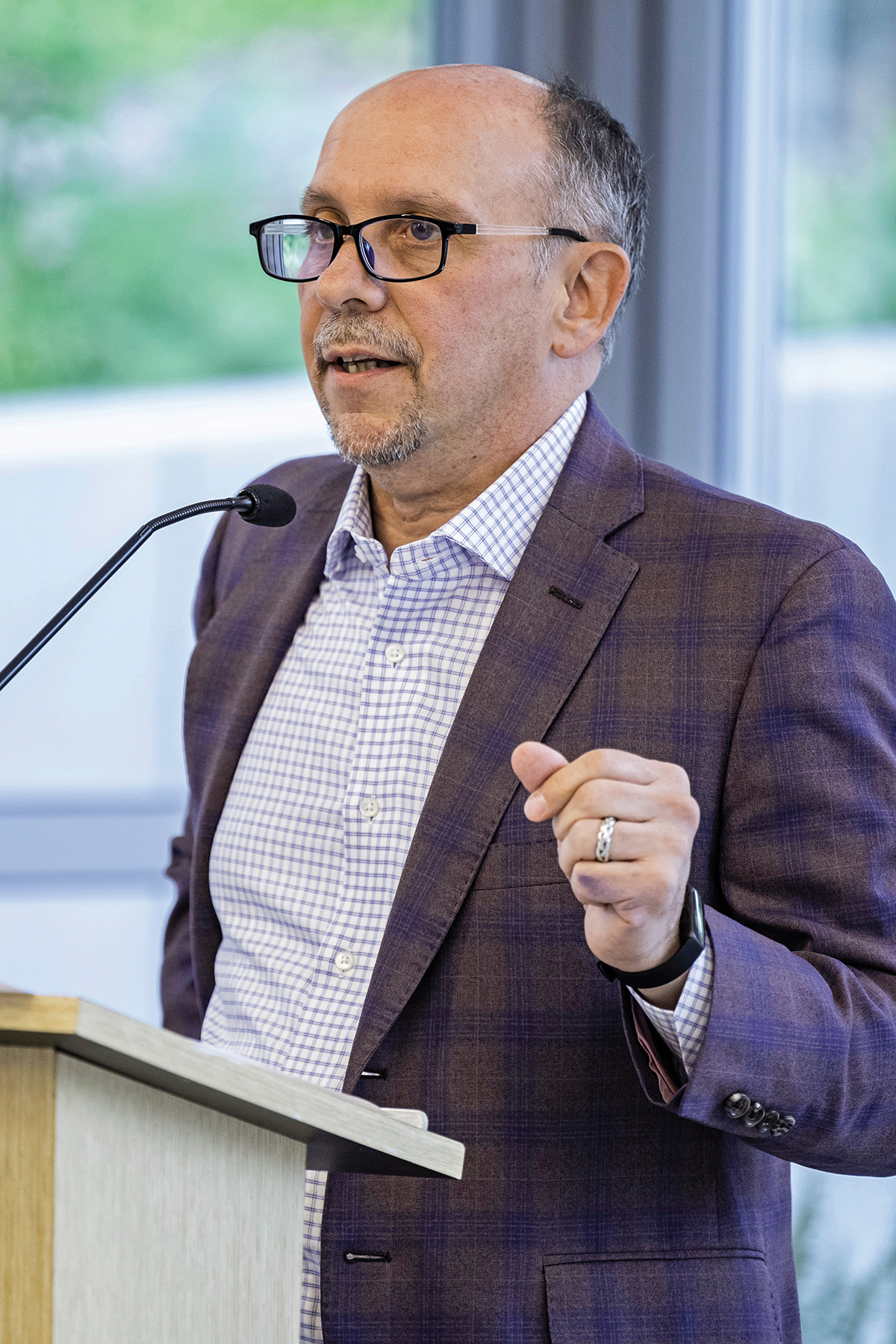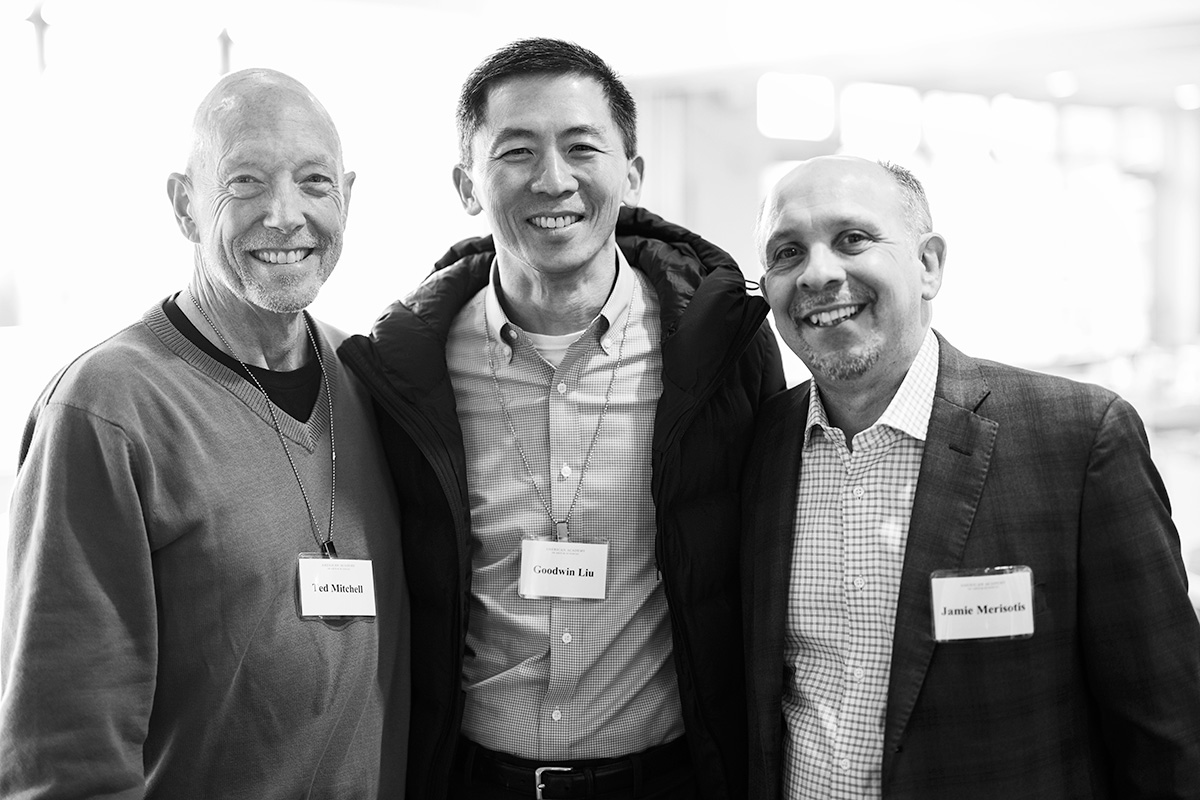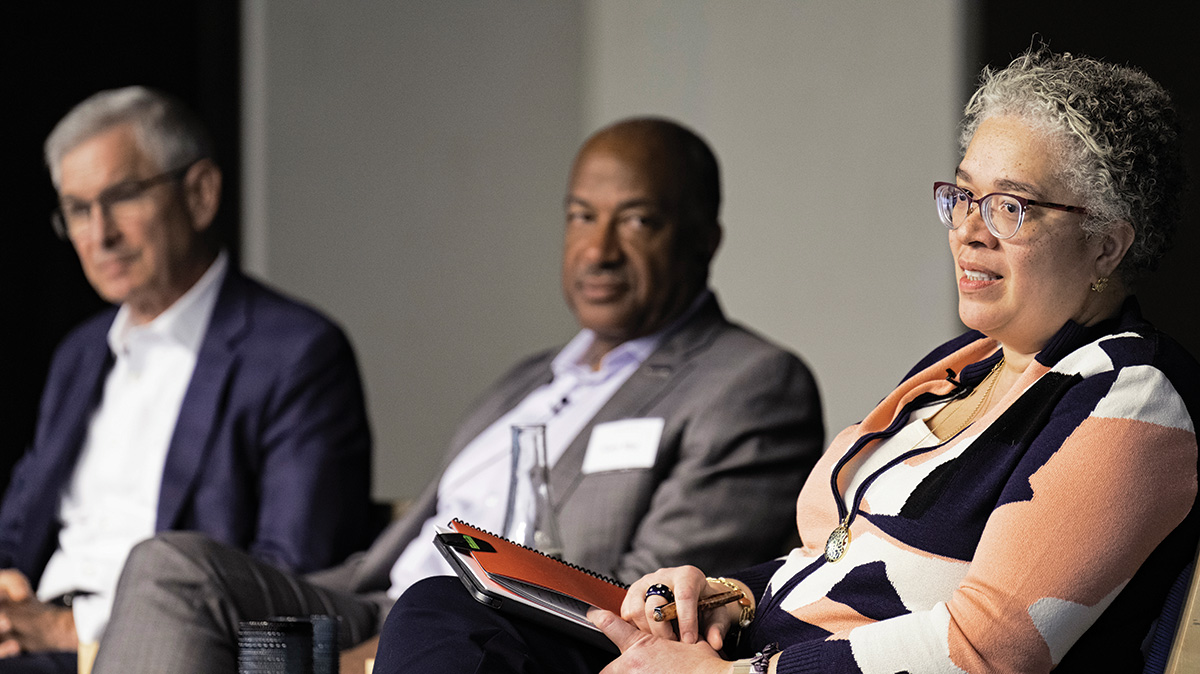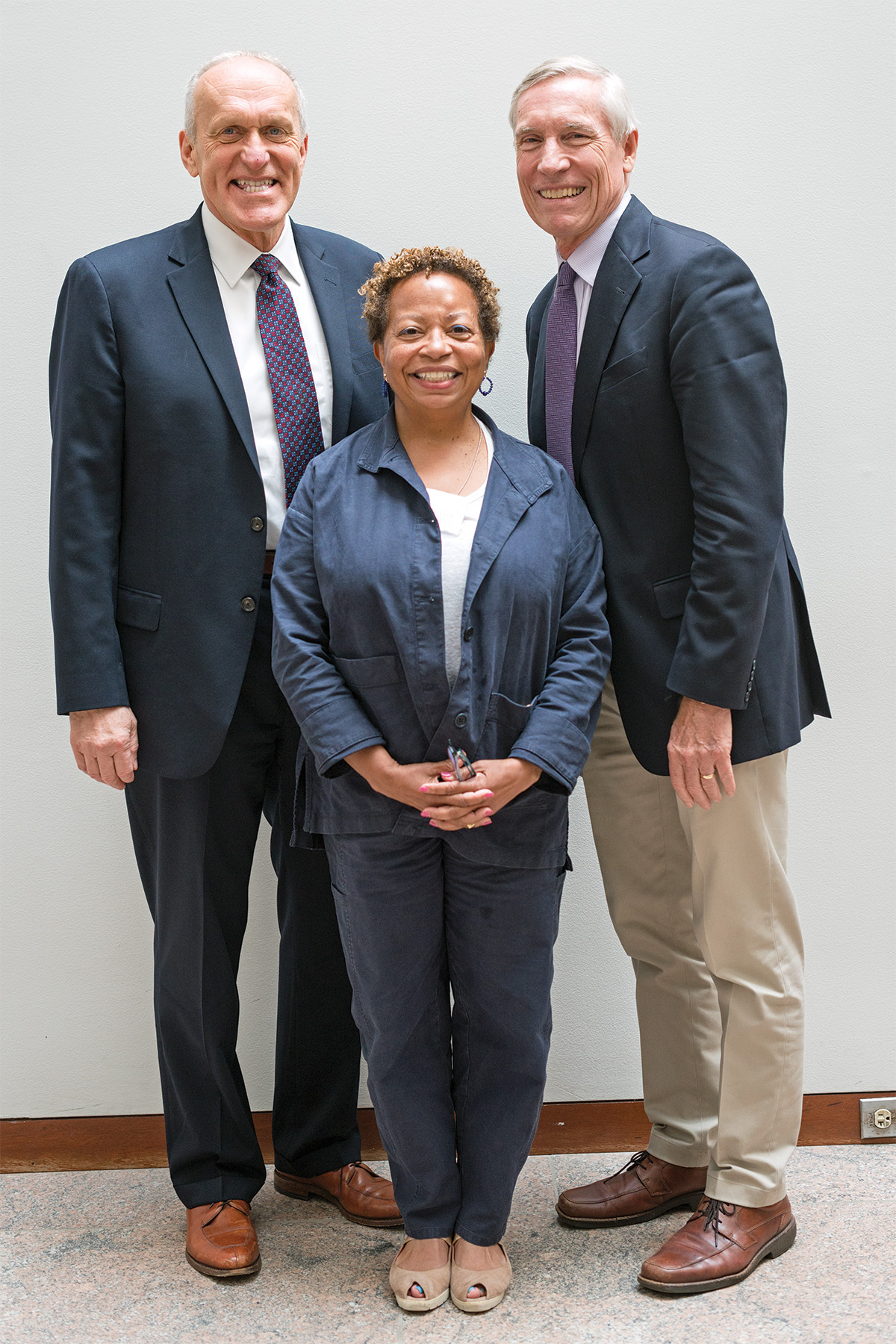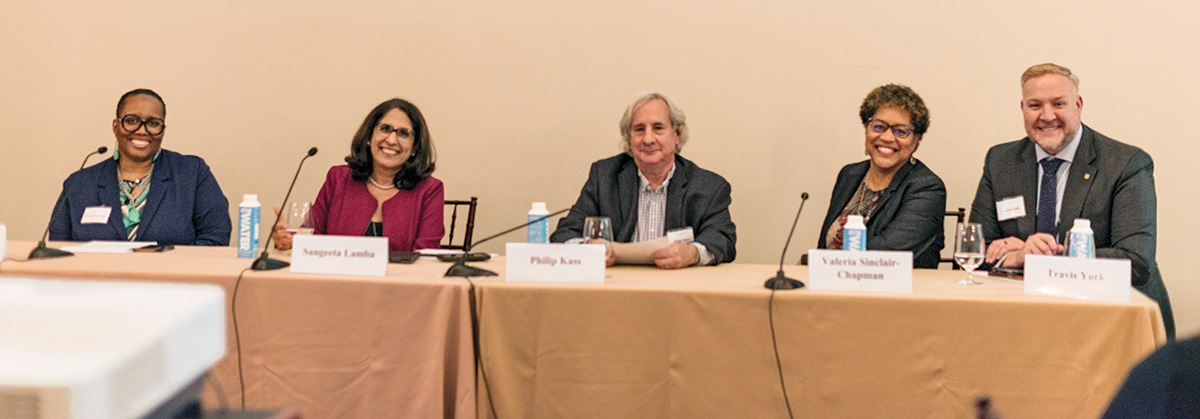Projects in the Education program area examine the vital role that education plays in our nation and the world. Work in this area seeks to inform policy and practice in support of high-quality educational opportunities for all Americans. From advancing equitable educational outcomes to leveraging new developments in the learning sciences and digital technologies to understanding the vital role that public universities play as engines of economic growth, innovation, social mobility, and citizenship, projects in this area draw on scholars and practitioners from diverse fields to provide guidance and actionable solutions to policymakers, higher education leaders, and philanthropists.
Project
The Higher Education Forum
In early 2022, the Academy acquired The Forum for the Future of Higher Education, a collaboration of higher education leaders and scholars that was established in 1984. Renamed The Higher Education Forum at the American Academy of Arts and Sciences, the Forum draws on the strengths of Academy Affiliates and members to provide leadership on pressing issues in higher education through an interdisciplinary and cross-sector approach.
The Higher Education Forum’s annual convening was held in Aspen, CO, on June 12–15, 2023. More than one hundred higher education experts and leaders, including university presidents, provosts, and academic deans from many of the Academy’s Affiliate institutions, engaged in discussions on topics that included the future of work, speech on campus and beyond, the changing political landscape, the health of our communities, artificial intelligence in our world, and maintaining diversity on campus.
The Higher Education Forum Advisory Committee
Deborah Loewenberg Ball
University of Michigan
Joanne Berger-Sweeney
Trinity College
Mary Schmidt Campbell
formerly, Spelman College
Nancy Cantor
Rutgers University–Newark
Sean Decatur
American Museum of Natural History
John DeGioia
Georgetown University
Howard Gardner
Harvard University
Nicholas Lemann
Columbia University
Kathleen McCartney
Smith College
Michael McPherson
formerly, Spencer Foundation
John Mitchell
Stanford University
David W. Oxtoby
American Academy of Arts and Sciences
Francesca Purcell
Harvard Graduate School of Education
Marcelo Suárez-Orozco
University of Massachusetts Boston
Funders
Bank of America
Kaplan, Inc.
Lumina Foundation
Hilltop Securities
United Educators
TIAA
Project
Commission on Opportunities After High School
The Commission on Opportunities After High School, approved by the Academy’s Council and Board of Directors in April 2023, will identify effective responses that address some of the systemic failures that perpetuate inequality and challenge the ability of young people in America to succeed after high school, with close attention to those who have historically encountered financial and racial barriers to a quality education and economic opportunity. The Commission will examine student pathways after high school and recommend ways to increase student information and understanding about those opportunities to ensure they can choose, and succeed in, the path that best serves their needs and aspirations.
Commission Chairs
Austin Beutner
Vision to Learn
Nancy Cantor
Rutgers University–Newark
Bridget Terry Long
Harvard University
Project Staff
Lywana Dorzilor
Program Coordinator for Education
Kimberlee Eberle-Sudré
Program Director for Education
Funders
Spencer Foundation
Carnegie Corporation of New York
Exploratory Meeting
Leading for a Future of Higher Education Equity: Transforming Supreme Court Challenges into Opportunities for Positive Change
House of the Academy, Cambridge, Massachusetts
August 2023
The Academy partnered with the American Council on Education and EducationCounsel to convene an exploratory meeting with senior leaders from a range of higher education institutions, including public and private institutions, large and small institutions, Historically Black Colleges and Universities, and some institutions already operating within environments that had banned affirmative action. The participants discussed the anticipated impact of Supreme Court rulings on affirmative action. They also shared how they could continue to advance equity and diversity through available avenues.
Meeting Chairs
Joanne Berger-Sweeney
Trinity College
Kim Wilcox
University of California, Riverside
Funders
Alfred P. Sloan Foundation
Mellon Foundation
Academy Partners
Ted Mitchell
American Council on Education
Art Coleman
EducationCounsel
Jamie Lewis Keith
EducationCounsel


